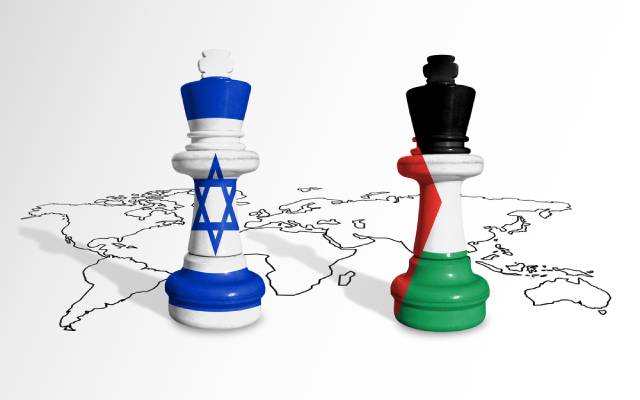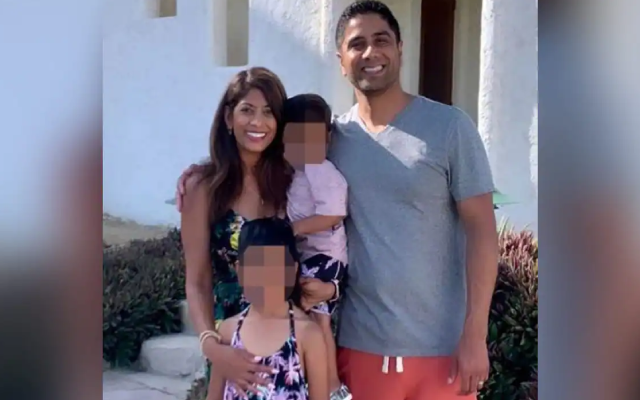Prelude to Israel-Palestine Conflict
The Israel-Palestine conflict has once again erupted, entering its tenth day of fierce clashes. This age-old feud between two nations has global implications that extend far beyond the borders of the Middle East. As the world’s attention has recently been drawn to the Russia-Ukraine war, which has claimed countless lives over the past year, the Israel-Palestine conflict’s deep-rooted history is often overlooked. We find ourselves at a critical juncture in a crisis that has spanned decades.
The Turning Point
The ominous events that transpired on a fateful Saturday, October 7, marked a significant turning point. Hamas, the militant organization that has retained control over the Gaza Strip for several years, launched an unprecedented offensive, firing more than 5,000 rockets towards Israel. The Israeli military responded with a ferocity that led to the loss of thousands of lives.
The Israel-Palestine conflict is not a recent development. It is a saga characterized by perpetual tension and sporadic eruptions of violence. As early as 2018, clashes flared up in Gaza, pitting Israeli and Palestinian forces against each other. These clashes further fueled the simmering animosity. In 2022, Israeli airstrikes targeted prominent figures within the Islamic Jihad group, adding yet another layer of complexity to the situation. By 2023, Israel had carried out an attack on Palestinian refugees, resulting in casualties and civilian deaths. A cycle of violence had firmly taken root, leading to over 3,000 casualties on both sides.
A History of Conflict
The birth of Israel on May 14, 1948, marked a watershed moment in the region’s history. Emerging three years after World War II, Israel was carved out of the partition of Palestine. Its establishment was met with immediate hostility, as neighboring Arab countries launched attacks. Israel, however, stood its ground and successfully defended itself, resulting in the displacement of over 760,000 Palestinians from their homes.
The year 1956 saw Israel, in coalition with Britain and France, invade Egypt. In 1967, Israel secured victory in a war against Arab nations, gaining control of territories such as East Jerusalem from Jordan, the Golan Heights from Syria, and the Sinai Peninsula from Egypt. In 2005, Israel withdrew from Gaza after a 38-year occupation, leaving it under the jurisdiction of the Palestinian Authority. However, the 2006 Palestinian legislative elections saw the Islamic militant group, Hamas, winning a majority, ushering in an era of intensified conflicts with Israel. This period was characterized by persistent violence, with Israel responding to rocket attacks through airstrikes and military operations. The cumulative casualties on both sides have exceeded 3,000.
The Conflict Intensifies
The Israel Defense Forces, in their bid to eliminate Hamas militants, declared that they are on the brink of dismantling the extremist group. Their announcement was unequivocal – Israel had taken control of the Gaza Strip, asserting that they had seized almost 200 buildings in Gaza and conducted raids using Israeli warplanes. Their pronouncement resonated with a stern tone: “The entire Gaza is under our control.” Yet, the Hamas militants, relentless in their rocket attacks, managed to inflict damage on significant structures in Israel.
In response, Israel unleashed airstrikes on the Gaza Strip without prior warning, putting Gazan residents in harm’s way. The warning from Israel was clear – as long as the Israeli military persisted with unannounced airstrikes in Gaza, Israeli civilians would remain at risk. However, it’s essential to recognize that this conflict is far more intricate than a simple narrative of aggression and retaliation. Reports have emerged suggesting that Hamas militants have engaged in inhumane actions, including the kidnapping of young children from Israel and their subsequent transport to Gaza. Shockingly, it is alleged that around 40 young children have been brutally murdered in Gaza, testifying to acts of barbarism.
Life and Property Lost
The loss of life and property on both sides is substantial, although official figures remain elusive. The Israeli military has reported the presence of over 1,500 Hamas militants surrounding the Gaza Strip. Their operations have targeted crucial institutions, including the Palestinian Ministry and the Civil Affairs Ministry in Gaza. Yet, they have made it clear that they will not provide any essential services until the Israelis held captive are released. Echoing this stance, Israel has warned that water, electricity, and basic necessities will not be provided until the hostages are released.
International Concern
The international community watches in distress as the situation deteriorates further. The unity in the global support for Israel is evident. Indian Prime Minister Narendra Modi declared, “We stand with Israel in solidarity,” a sentiment that resonates with leaders worldwide. French President Emmanuel Macron, Italian Prime Minister Giorgia Meloni, UK Prime Minister Rishi Sunak, German Chancellor Olaf Scholz, and U.S. President Joe Biden have all expressed their unwavering support for Israel.
Five major nations have forcefully condemned the violent acts committed by Hamas terrorists against Israel, emphasizing the lack of justification or support for such acts of terrorism. The grim reality is that violence only begets more destruction, not development. As the conflict escalates, it casts a long shadow over countries in the Asia-Pacific region, including India.
A Call for Peace
Amid the tumultuous times, calls for peace
have grown louder. A peaceful resolution is the only way to break the cycle of violence perpetuated by extremist organizations and the relentless Israel-Palestine conflict. The saga of this enduring conflict continues to unfold, underscoring the urgent need for a peaceful and lasting solution in a region scarred by ongoing violence and tragedy. It is a stark reminder that peace, no matter how elusive, remains the ultimate aspiration for those trapped in the crossfire of this enduring conflict.

















